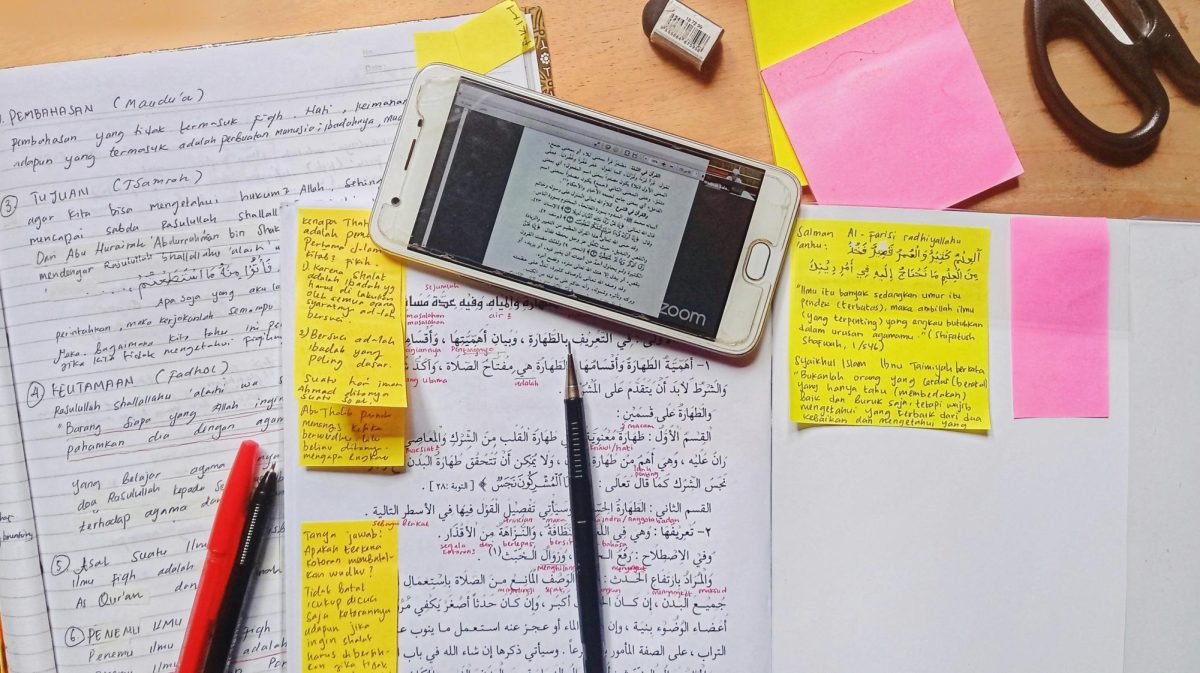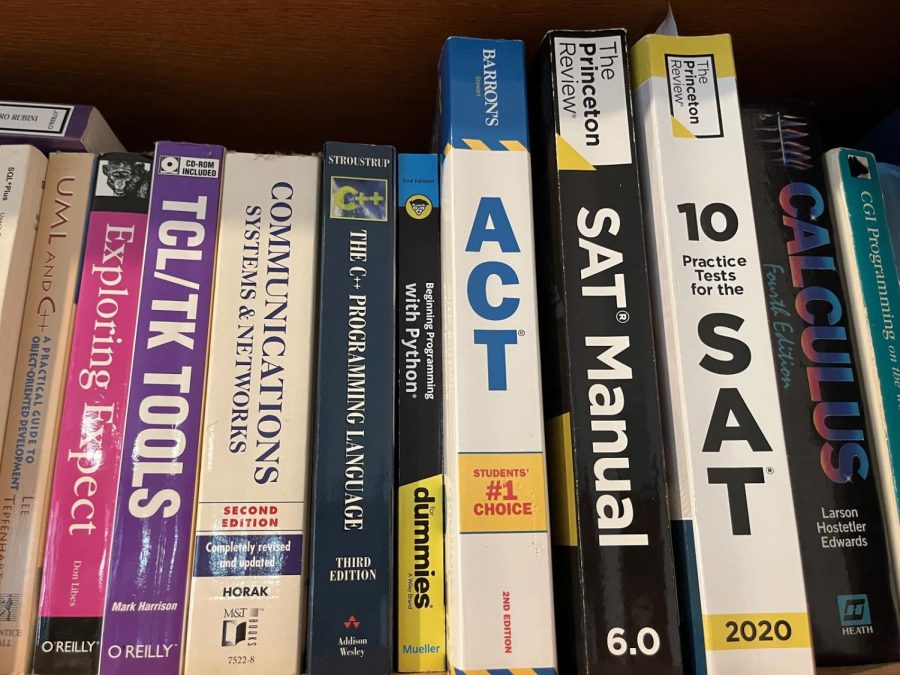The future of digitalized testing: Green Hope administers first online ACT
Students study for the ACT using textbooks, making prepration for the exam difficult.
March 10, 2023
On Mar. 8, Green Hope High School transitioned from pen-and-paper to digital testing for the ACT. The online exam was mandatory for the current junior class (‘24) and required extensive preparation from teachers and administrators.
Students took the test on school-provided laptops through the TestNav app. Students entered a four-digit code provided by their proctor each time they moved from one section to another. Notable testing features included a timer in the top right of the screen and an online calculator for the math section.
In order to prepare for the ACT, teachers learned how to operate the testing system. In an interview with The GH Falcon, Social Studies teacher Ms. Sydney Gavan provided insight on the process.
“Teachers receive an email to make an account to administer the test with. Then we go to a training session with Ms. Nicolle Maurakis,” she said. “She runs us through a simulated test showing us how to operate the test from both sides of the computer, both student and teacher.”
Some students expressed skepticism when they first heard the ACT would be fully online, especially because they did not know what it would look like. Before taking the ACT, Green Hope student Madison Saliba (‘24) commented on the new change. “I don’t like the idea of it being online, because I think it’s going to be harder to find the questions. I don’t think they’re going to line up as well.”
Students also worried about losing the ability to annotate their tests. “Especially on the English and reading sections, I want to be able to underline and highlight the text,” Saliba said.
Joselyn Yoo (‘23) agreed that being able to write on the test was important. “Personally, I prefer paper tests over online ones. I can annotate as much as I want, which helps me answer questions efficiently,” she said.
However, students acknowledged that the online ACT would have its benefits. “Accidental marks or incomplete bubble filling won’t be a problem anymore,” Yoo said. “Online tests might be easier because we won’t have to use separate answer sheets and can navigate to previous questions more smoothly.”
After taking the ACT on Wednesday, many juniors had mixed feelings about the exam. “I liked that the English and reading sections were online because it highlighted the text for me, which helped me focus,” Saliba said. “The math online was horrible. I think it’s much easier to be able to write on the math section. Same with the science section.”
In regards to future exams, both students and teachers predicted that there would be a shift toward online testing. “I think a lot of the future tests are going to go online. I think that’s just how everything is moving as things become more digitized,” Saliba said.
As more schools switch to online testing, students and teachers alike are learning to navigate new features and formats.






















































